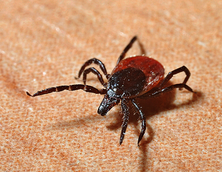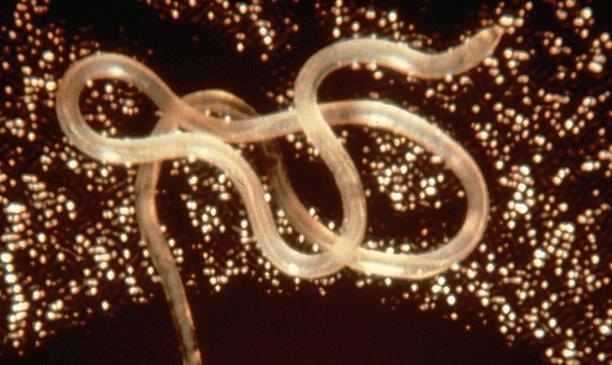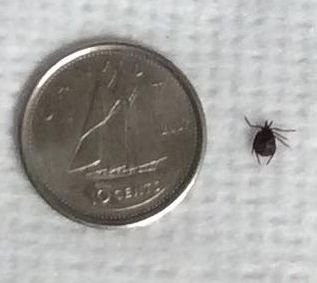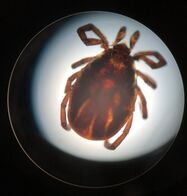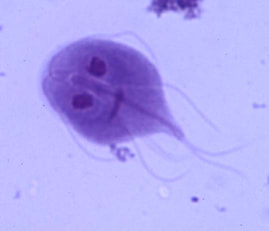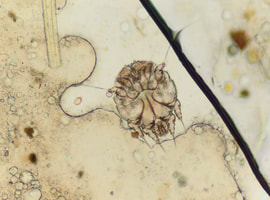Parasite Treatment and Prevention
What is a parasite?
A parasite can be defined as an organism that lives in or on another organism (its host) and benefits by taking nutrients at the host's expense. Our pets can have internal or external parasites; meaning, some parasites live inside the body while other parasites live outside the body.
Internal ParasitesA common group of internal parasites often found in our pets are intestinal parasites. Intestinal parasites are parasites that live inside the host animal's gastrointestinal tract. Examples include roundworms, whipworms, hookworms, tapeworms and protozoa (such as giardia and coccidia). |
External ParasitesThe most well known external parasites in our area include fleas, ticks, and mites. There area several types of mites found in both the cat and dog. |
How do dogs and cats get intestinal parasites?All dogs and cats are at risk for becoming infected with intestinal parasites. The degree of risk will varying for each pet depending on their lifestyle, diet and environment. Dogs and cats can contact intestinal parasites by different routes. Parasites are usually transmitted when an animal inadvertently ingests parasite eggs or spores in contaminated soil, water, feces or food. In the case of tapeworms, the can also be transmitted when a dog or cat eats an infected flea or ingests raw meat or fish. Puppies and kittens, on the other hand, usually get intestinal parasites from their mother. Transmission occurs while puppies are in the mother's uterus, or while the puppies or kittens are nursing. |
How do dogs and cats get external parasites?Dogs and cats can become infected with external parasites through direct contact with other infected animals, or through indirect contact. Indirect contact can including contact with contaminated bedding, grooming equipment, or environments.
|


